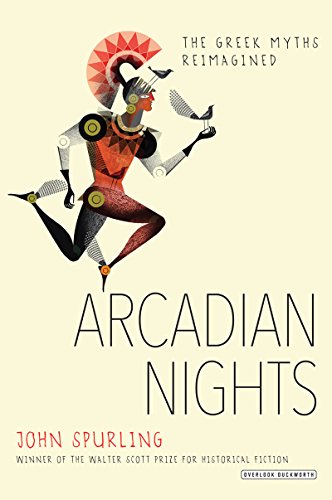Arcadian Nights: The Greek Myths Reimagined
With Arcadian Nights: The Greek Myths Reimagined, John Spurling, winner of the Walter Scott Prize for Historical Fiction, makes an ambitious bid to join the ranks of myriad classical anthologies already on the market. Surprisingly, he succeeds.
What makes these retellings (or “reimaginings,” as Spurling bills them) new and different? A glance at the Table of Contents, featuring sections on Herakles, Theseus, and other familiar suspects, augurs little originality. And while the narrative is charmingly irreverent (“Hippodameia was all for leaving Myrtilos in the mountains as prey for lions, but Pelops argued that one could never count on lions”), Spurling wavers between seriousness and satire and never completely commits to one or the other.
However, what makes this book shine is Spurling’s personal knowledge of Greece and of Arcadia in particular. In the introduction Spurling tells of how he and his wife fell in love with a cottage in Arcadia and bought it as a second home – and he continues to draw on modern-day references throughout the book. His tales begin with himself looking out over the Gulf of Argos, imagining Agamemnon’s signal fires heralding the end of the Trojan War – or exploring the ruins of the ancient sanctuary of Apollo the Shepherd, since converted to a chapel to the Prophet Elijah. Rather than creating an immersive historical fiction narrative (as one might expect from an established author in the genre), Spurling instead adopts the habits of the most readable pop history – seamlessly interweaving personal and historical perspectives, discussing the people and events of prior ages as if they all led inexorably to the world of today.
For the young reader prepared to face frequent (if somewhat blithe) references to rape and violence, or for the adult with an enduring fondness for the Classics, Arcadian Nights is good fun.










